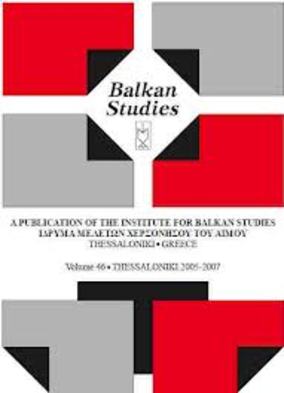Greece and Bulgaria, 1949-1964 : the unspoken assumptions
Part of : Balkan studies : biannual publication of the Institute for Balkan Studies ; Vol.33, No.1, 1992, pages 143-153
Issue:
Pages:
143-153
Section Title:
Articles
Author:
Abstract:
The history of Greek-Bulgarian relations in the first post-war period isvery complicated. It is in a combination of factors that one should seek to trace the perceptions of statesmen in Athens and in Sofia. Apart from differencesof their political economic and social systems, additional factorsdivided the two countries. Since 1870, there was an uninterrupted legacy ofconflict between Greece and Bulgaria. This made the Greeks reluctant to believethat the Bulgarians would abandon their traditional policy of pursuingterritorial revision. The break up of the Korean war in 1950 seemed to confirmthese fears. Greek armed forces, furthermore, were far weaker than the Bulgarianones, something which did not allow the Greek governments to takea confident attitude towards Sofia. Finally, the Cyprus question permittedthe Soviet bloc (of which the major representative in the Balkans was Bulgaria)to exert all kinds of pressure to Athens. It was only after the 1962 Cubanmissile crisis that both Greeks and Bulgarians felt confident to make a freshstart. In 1964, they proceeded to a full normalisation of relations, which becameone of the most precious stabilising elements in the region.
Subject:
Subject (LC):
Keywords:
Ελλάδα και Βουλγαρία 1949-1964




